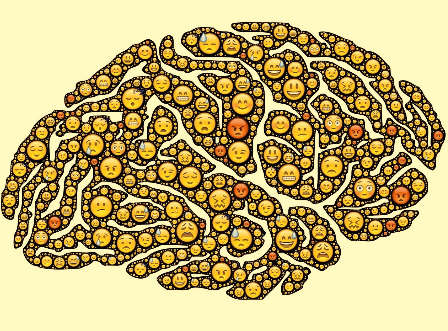Introduction To Health
Health is a fundamental aspect of our lives that often is ignored until it is compromised. If we talk about health and think about what comes together it not only encompasses our physical well-being, but also our mental and emotional states.
As a human being we need to ensure our body is provided with all nutrients to maintain its correct overall functionality. With this it is necessary to ensure a complete body protection against “malfunctions”. If we do not care about this aspect it could lead to several diseases and illnesses. To mention here are impairments in physical fitness, immune system and mental well-being as top categories. If we dive a little deeper into it, there are for example: Chronic diseases like diabetes, heart diseases, cancer, Alzheimer, Parkinson, overweight, underweight, hypertension, breathlessness, anxiety, depression. There is only one life you have, nothing more. So ensuring a good health is the most important aspect you should prioritize and set you’re your focus on.
If you
- Stay physical active
- Eat in a balanced way
- Do a nutritious diet
- Get regular check-ups
- Keep your brain stimulated and challenged
- Do social interactions
you can significantly decrease the risk of those impairments and diseases.
Furthermore, maintaining good health has a direct impact on our mental and emotional well-being. Studies have shown that regular exercise can improve mood and reduce symptoms of anxiety and depression. Similarly, eating a healthy diet rich in essential nutrients can also contribute to our overall mental health. When we prioritize our physical health, we are also taking care of our mental health, creating a positive cycle of well-being.
Conclusion
By making healthy choices, we can increase our energy levels, improve our sleep patterns, and boost our immune system. In turn this allows us to be more productive, engaged, and happy individuals. When we are in good health, we are better equipped to handle the demands of daily life and pursue our goals and passions.
Furthermore our health sets a positive example for those around us, especially for younger generations. As role models, it is our responsibility to lead by example and show the importance of taking care of ourselves. By prioritizing our health, we not only improve our own lives, but we also inspire others to do the same.
- The terms of physical, mental and emotional health
- Physical Health
- Mental Health
- Emotional Health
- Benefits of a healthy lifestyle
- Prevention of diseases
- Stress management and disease prevention
- The importance of sleep
- Why to take care of nutrition and healthy eating?
- What are essential nutrients and what are the sources?
The terms of physical, mental and emotional health
The terms “physical,” “mental,” and “emotional” represent different dimensions of health. Each contribute to an individual’s overall well-being.
Physical Health:

Definition: Physical health refers to the state of the body and its ability to function in an optimal way. This is important for managing daily tasks, problems and difficulties. It is a central aspect of health which mirrors vitality, performance and quality of life.
Components: It encompasses various factors such as fitness, nutrition, sleep, and overall bodily functions.
Indicators: Physical health can be evaluated through measurements like body weight, blood pressure, heart function, cholesterol levels, and the absence of chronic diseases.
Activities: Exercise, proper nutrition, regular check-ups, and sufficient rest contribute to maintaining or improving physical health.
Benefits: To mention some benefits there is strengthening of heart, muscles, enhanced blood flow and optimal weight. Furthermore you will benefit from reduction of heart-circuit-diseases, preservation of gross and minute motor activities, strengthening of physical resilience, immune system. A crucial aspect I like to mention here too is the preservation of optimal functions and protection of cells and organs due to a balanced nutrition and movement [1].
Mental Health:

Definition: Mental health involves cognitive and emotional well-being which are encompassing psychological and emotional aspects.
Components: It includes factors like stress management, cognitive function, emotional regulation, and resilience.
Indicators: Mental health is often assessed through an individual’s ability to cope with stress, maintain positive relationships, and handle challenges effectively.
Activities: Engaging in activities that challenge your brain and stimulate cognitive functions, promote relaxation, seeking therapy or counseling when needed, and practicing mindfulness are ways to support mental health. Regarding stress management there are several activities which can help to reduce stress, like Yoga, Meditation, Breathing Exercises, Sport. Next to them you may need to have a balanced nutrition, use social networks which can support to maintain stress levels. Another crucial part is sleep and recovery which is very important for the body to regenerate.
Benefits: Mental health is more a state of mind functioning. To emphasize here we benefit from enhanced learning skills, a better creativity and higher levels of productivity. Furthermore we increase enhanced memory skills and rational thinking. In addition you will also maintain to deal with stress, anciety or even depression.
It is also related to a better self-acceptance and self-esteem. All of them improve communication, interpersonal skills and the capability to change self-defeating behaviours and habits. You feel more optimistic, are more confident and do not blame yourself [2].
Emotional Health:

Emotional Health:
Definition: Emotional health pertains to the ability to recognize, understand, and manage one’s emotions in a healthy way.
Components: It involves emotional intelligence, empathy, self-awareness, and the ability to express and regulate emotions appropriately.
Indicators: Emotional health is reflected in one’s emotional resilience, the quality of relationships, and the ability to navigate emotional challenges effectively.
Activities: Developing emotional intelligence, expressing emotions in a constructive manner, and building positive relationships contribute to emotional well-being.
Benefits: Emotional health is the ability to handle positive and negative emotions. You become better in self reflection which helps to control and steer your emotions and actions next to other people, for instance in conflicts. You are aware of your feelings and can handle up and downs of life. All of these skills help to manage lifes challenges [3].
Summary:
In summary, physical health focuses on the body’s condition and its functional aspects.
Mental health revolves around the state of mind which are cognitive skills, learning, thinking and also stress management.
Emotional health emphasizes the ability to understand and manage one’s emotions effectively.
For obtaining overall health you need to find a balance between these dimensions and adopt holistic lifestyle practices. Every part is a piece of the puzzle and to complete it you need to ensure every piece is working.
Benefits of a healthy lifestyle:
- Improved physical fitness
- Enhanced mental well-being
- Increased energy levels
- Better immune system
Living a healthy lifestyle has numerous benefits that can positively impact our physical, mental, and emotional well-being. If we make conscious choices to prioritize our health, we are not only taking care of our bodies but also investing in our overall quality of life. The prevention of chronic diseases is one of the most significant benefits of a healthy lifestyle. By maintaining a balanced diet and engaging in regular physical activity, we can reduce the risk of developing conditions.
For example: Heart disease, diabetes, and obesity. In turn this can help us to live longer and enjoy a higher quality of life without having to worry about health complications.
Moreover, a healthy lifestyle also has a direct impact on our mental health. Studies have shown that regular exercise and a balanced diet can improve mood and reduce symptoms of anxiety and depression. When we take care of our physical health, we are also nourishing our minds. This can lead to increased productivity and a more positive outlook on life. Additionally, engaging in activities such as yoga or meditation can help reduce stress and promote relaxation. As a result this leads to a better overall sense of well-being.
Furthermore a healthy lifestyle also has social benefits. When we make healthy choices, we are more likely to engage in social activities such as sports or group fitness classes. These activities do not only promote physical fitness but also provide opportunities for social interaction. With this we are able to form meaningful relationships. This is especially important in today’s fast-paced and technology-driven world, where face-to-face interactions are becoming increasingly rare.
Another important aspect is that maintaining a healthy lifestyle can also have a positive impact on our finances. By avoiding unhealthy habits like smoking and excessive drinking, we can save money on medical expenses in the long run. Additionally, eating a balanced diet and exercising regularly can help prevent the need for costly medical treatments. As a result this leads to overall financial stability.
Lastly, a healthy lifestyle can also have a positive impact on our self-esteem and confidence. When we take care of our bodies and minds, we feel more confident in our abilities and appearance. This, in turn, can lead to a more positive self-image and a greater sense of self-worth.
In conclusion, the benefits of a healthy lifestyle are numerous and far-reaching. By prioritizing our health and making conscious choices to maintain a balanced diet and engage in regular physical activity, we can not only prevent chronic diseases. In addition we improve our mental, social, and financial well-being. So let us make a commitment to living a healthy lifestyle and reap the many rewards it has to offer [4].
Prevention of diseases:

Living a healthy lifestyle is crucial for preventing various diseases and maintaining overall well-being. Regular physical activity, a balanced and nutritious diet, and proper stress management are key components of a healthy lifestyle. This can have a significant impact on preventing diseases. Engaging in physical activity not only helps maintain a healthy weight, but it also strengthens the immune system and reduces the risk of chronic diseases such as heart disease, diabetes, and cancer.
Eating a balanced diet that includes a variety of fruits, vegetables, whole grains, and lean proteins provides the body with essential nutrients and antioxidants that help fight off infections and protect against diseases.
In contrast, an unhealthy lifestyle characterized by a sedentary lifestyle, poor dietary choices, and chronic stress can weaken the immune system, increase inflammation in the body, and make individuals more susceptible to diseases. By adopting healthy habits and making them a part of daily life, individuals can effectively prevent various diseases and lead a longer and healthier life [5].
Stress management and disease prevention:

Stress management is another important factor in preventing diseases. Chronic stress can weaken our immune system, making us more susceptible to illnesses and diseases. It can also lead to unhealthy habits such as overeating, smoking, and excessive alcohol consumption, which can increase the risk of developing chronic diseases. By managing stress effectively through techniques such as meditation, yoga, or deep breathing exercises, we can reduce the negative impact it has on our bodies and overall health.
Moreover, nutrition, exercise, and stress management are interconnected. A healthy diet can provide us with the energy and nutrients we need to exercise regularly, which, in turn, can help in managing stress. When we exercise, our bodies release feel-good hormones that can improve our mood and reduce stress levels. Similarly, managing stress can also improve our eating habits, as many people tend to overeat or make unhealthy food choices when stressed.
In conclusion, a healthy lifestyle that includes proper nutrition, regular exercise, and effective stress management is crucial for preventing diseases. These three factors work together to strengthen our immune system, maintain a healthy weight, and reduce the risk of developing chronic diseases. By making small changes to our daily habits and incorporating these healthy practices into our lives, we can significantly improve our overall health and well-being and prevent diseases [6].
The importance of sleep:

Please, never ever underestimate the importance of sleep. Sleep is an essential part of our daily lives, yet it is often overlooked and undervalued. Many people see sleep as a waste of time and prioritize other activities over getting a good night’s rest. However, sleep is critical for our physical, mental, and emotional well-being. It is the time when our body and mind recharge and rejuvenate, preparing us for the challenges of the upcoming day.
One of the primary reasons why sleep is important is that it allows our body to repair and regenerate itself. During sleep, our body produces new cells, repairs damaged tissues, and strengthens our immune system. It is also the time when our brain consolidates memories, processes information, and makes connections, which are crucial for learning and memory retention. Without enough sleep, our body and mind cannot function at their optimal level, leading to various health problems such as weakened immune system, impaired cognitive function, and increased risk of chronic diseases.
Moreover, sleep plays a crucial role in regulating our hormones and metabolism. When we sleep, our body produces hormones that control appetite and hunger, such as leptin and ghrelin. Lack of sleep disrupts this balance, leading to increased appetite and cravings for unhealthy foods, which can contribute to weight gain and obesity. Additionally, chronic sleep deprivation can also disrupt our metabolism and increase the risk of conditions such as diabetes and heart disease.
Furthermore, getting enough sleep is essential for our mental and emotional well-being. Sleep helps regulate our mood and emotions, and lack of sleep can lead to irritability, anxiety, and depression. It also plays a crucial role in managing stress. When we are sleep-deprived, our body produces more stress hormones, which can make us feel more anxious and overwhelmed. Chronic sleep deprivation has also been linked to an increased risk of mental health disorders such as depression and bipolar disorder.
In today’s fast-paced and highly demanding society, sleep has become a luxury rather than a necessity. Many people sacrifice their sleep to keep up with their hectic schedules, thinking that they can make up for it later. However, the truth is that chronic sleep deprivation can have long-lasting effects on our overall health and well-being. It is crucial to prioritize sleep and make it a top priority in our daily routines.
In conclusion, sleep is an essential part of a healthy lifestyle. It is the time when our body and mind recharge, repair, and rejuvenate. Getting enough quality sleep is crucial for our physical, mental, and emotional well-being. It is not a luxury, but a necessity that we must prioritize in our daily lives to live a healthy and fulfilling life. So, the next time you consider sacrificing your sleep for other activities, remember that a good night’s rest is crucial for your overall health and well-being [7].
Why to take care of nutrition and healthy eating?

A balanced diet is a diet that consists of a variety of different foods in the right proportions, providing the body with all the essential nutrients it needs to function properly. This includes carbohydrates, proteins, fats, vitamins, minerals, and water. Each of these nutrients has a specific role in the body, and a balanced diet ensures that all of them are consumed in adequate amounts. Consuming a balanced diet is significant for several reasons. Firstly, it promotes overall health and well-being.
A balanced diet provides the body with the necessary nutrients to maintain a healthy immune system, which helps fight off diseases and infections. It also helps maintain a healthy weight and reduces the risk of chronic diseases such as diabetes, heart disease, and certain types of cancers.
Secondly, a balanced diet is essential for proper growth and development, especially in children. It provides the body with the necessary nutrients for healthy bone and muscle development, as well as brain function.
Thirdly, a balanced diet can improve mental health and mood. Certain nutrients, such as omega-3 fatty acids, have been linked to improved brain function and can help alleviate symptoms of depression and anxiety.
Furthermore, a balanced diet can also improve energy levels and increase productivity. When the body is properly nourished, it can function efficiently, leading to increased energy levels and improved cognitive function.
In conclusion, a balanced diet is vital for maintaining good health and preventing various health problems. It is essential to consume a variety of foods in the right proportions to ensure that the body receives all the necessary nutrients for optimal functioning. Making healthy food choices and maintaining a balanced diet can have a significant impact on overall health and well-being [8].
What are essential nutrients and what are the sources?
Carbohydrates:
Carbohydrates are the main source of energy for our body. They are broken down into glucose, which is used by our cells for various functions. The best sources of carbohydrates are whole grains, fruits, vegetables, and legumes. These foods are rich in fiber, vitamins, and minerals, making them an essential part of a healthy diet.
Proteins:
Proteins are the building blocks of our body and are essential for the growth and repair of tissues. They are also important for the production of hormones, enzymes, and antibodies. Good sources of protein include lean meats, poultry, fish, eggs, dairy products, legumes, and nuts.
Fats:
Fats are a concentrated source of energy and are essential for the absorption of fat-soluble vitamins, such as vitamins A, D, E, and K. The best sources of healthy fats are avocados, olive oil, nuts, and fatty fish like salmon, which are rich in omega-3 fatty acids.
Vitamins:
Vitamins are essential for various bodily functions, including immunity, vision, bone health, and wound healing. There are 13 essential vitamins, and each one has a specific role in maintaining our health. Some good sources of vitamins are fruits, vegetables, whole grains, dairy products, and fortified cereals.
Minerals:
Minerals are essential for the proper functioning of our body. They help in building strong bones, regulating body fluids, and maintaining a healthy nervous system. Calcium, iron, potassium, and magnesium are some of the essential minerals that can be found in foods like dairy products, leafy greens, nuts, and seeds.
Water:
Although not technically a nutrient, water is essential for our body to function properly. It helps in regulating body temperature, transporting nutrients and oxygen to cells, and removing waste products. It is recommended to drink at least 8 glasses of water per day to stay hydrated.
Antioxidants:
The body creates so called free radicals all the time inside of your body, where molecular oxygen is involved.
But those free radicals are quite aggressive. They are able to migrate through cell walls, finally destroying them, after they migrated into the cell core. Once this process process happens and keeps going for a while this could be the beginning of several diseased, like Multiple Sclerose, Parkinson, Alzheimer and many more. Mental Brain health is decreasing by time due your body is not able to compensate this process because it does not have the nutrients it really needs.
Important antioxidants are:
Selenium:
An important antioxidant is Selenium, which protects the body from so-called dangerous free radicals. These attack the cell walls, enter the cell interior, and ultimately lead to the destruction of the cell. This is the basis of various diseases, such as multiple sclerosis, Parkinson’s, or Alzheimer’s. Selenium cannot be produced by the body itself and must be actively supplied through food or dietary supplements.
Vitamin E:
Vitamin E also belongs to the antioxidants and is crucial for proper brain function. Nerve cells are surrounded by a so-called myelin sheath, which is monitored by Vitamin E. With an intact myelin sheath, the aging process is slowed down, making it helpful in preventing Alzheimer’s. Additionally, Vitamin E acts as a radical scavenger, countering toxins in the body.
Vitamin C:
Vitamin C can intercept free radicals as a valuable antioxidant before cell damage can occur. It contributes to the protection of DNA, lipids, and other body structures.
Riboflavin:
Vitamin B, also known as riboflavin, is an antioxidant that reduces oxidative stress in cells. It contributes to the normal function of the nervous system, is involved in energy metabolism, and cannot be produced by the body itself.
Beta Carotene:
As an antioxidant, it, for example, captures free radicals, ensuring that oxidative stress in your body is reduced, and fewer inflammations occur.
Summary:
It is important to note that the quality and quantity of these essential nutrients in our diet can vary depending on factors such as age, gender, and lifestyle. For example, pregnant women and older adults may have different nutrient requirements compared to young adults. It is essential to consult a healthcare professional or a registered dietitian to determine individualized nutrient needs.
In conclusion, a well-balanced diet that includes a variety of whole foods is the key to obtaining all the essential nutrients our body needs. It is important to consume a variety of foods from different food groups to ensure an adequate intake of all essential nutrients. In addition to a healthy diet, regular exercise and a good night’s sleep are also important factors in maintaining overall health and well-being. By making these small but significant changes to our lifestyle, we can ensure that our body receives all the essential nutrients it needs to function at its best [9, 10, 11, 12].